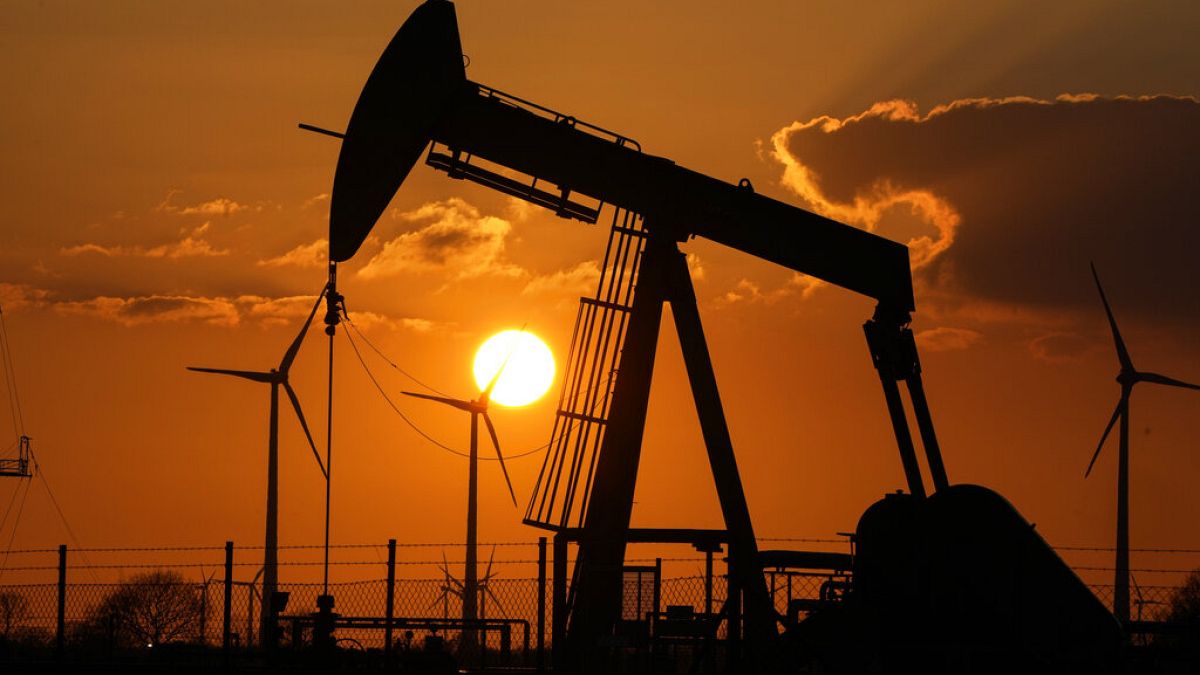In its latest report, the World Bank outlines three possible scenarios and what they entail for the commodity markets.
Oil prices could face a shock and jump to as high as $157 (€147) a barrel if the Middle East crisis escalates, the World Bank has warned in its quarterly report about the commodity market.
The bank also warns that the war could mean higher food prices if sustained.
The report also noted that oil prices have risen only about 6% since the start of the Israel Hamas war, while prices of agricultural commodities, most metals and other commodities "have barely budged."
According to its baseline scenario, the World Bank expects global oil prices to average $90 a barrel in the last three months of this year, resulting in an average price of $81 in 2023 as slowing economic growth eases demand.
The European benchmark Brent crude oil traded for $88.3 at 11h CET in the ICE Intercontinental Exchange Europe.
As for the rest of the commodity market, the report forecasts a fall in prices next year, by 4.1% overall before they stabilise in 2025. Due to increased supplies, agricultural commodities are expected to be cheaper next year. Prices of base metals are projected to drop too, by 5% in 2024.
What an escalating Israel Hamas war could bring to the markets
In its Commodity Markets Outlook, the organisation outlined three risk scenarios for the Israel Hamas war, based on historical episodes involving regional conflicts since the 1970s.
The least disruptive outcome would see the global oil supply reduced by 500,000 to 2 million barrels per day, pushing the prices up between 3% and 13% to a range of $93 to $102 a barrel.
If the situation escalates further, in a “medium disruption” scenario—roughly equivalent to the Iraq war in 2003—the global oil supply would be curtailed by 3 million to 5 million barrels per day. That would drive oil prices up by 21% to 35% initially—to between $109 and $121 a barrel.
In a “large disruption” scenario—comparable to the Arab oil embargo in 1973— the global oil supply would shrink by 6 million to 8 million barrels per day. That would drive prices up by 56% to 75% initially—to between $140 and $157 a barrel.
“The latest conflict in the Middle East comes on the heels of the biggest shock to commodity markets since the 1970s—Russia’s war with Ukraine,” said Indermit Gill, the World Bank’s chief economist and senior vice president for development economics.
“That had disruptive effects on the global economy that persist to this day. Policymakers will need to be vigilant,” he said. “If the conflict were to escalate, the global economy would face a dual energy shock for the first time in decades—not just from the war in Ukraine but also from the Middle East.”
“Higher oil prices, if sustained, inevitably mean higher food prices,” said Ayhan Kose, the World Bank’s deputy chief economist and director of the Prospects Group. “If a severe oil-price shock materialises, it would push up food price inflation that has already been elevated in many developing countries.”
If the Israel-Hamas conflict escalates, policymakers in developing countries will need to take steps to manage a potential increase in headline inflation, the World Bank said.
It added that governments should avoid trade restrictions such as export bans on food and fertiliser because they can often intensify price volatility and heighten food insecurity.
“An escalation of the latest conflict would intensify food insecurity, not only within the region but also across the world,” said Kose.



